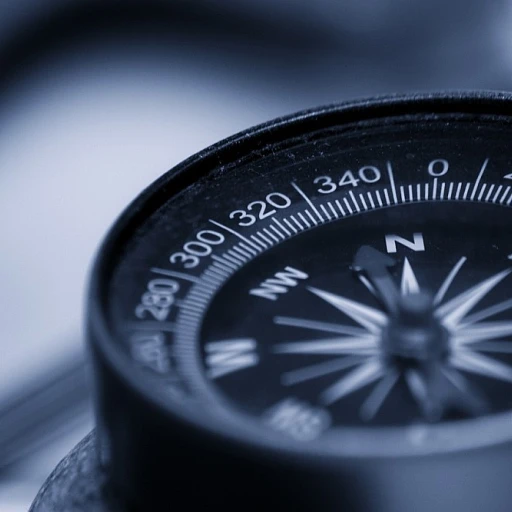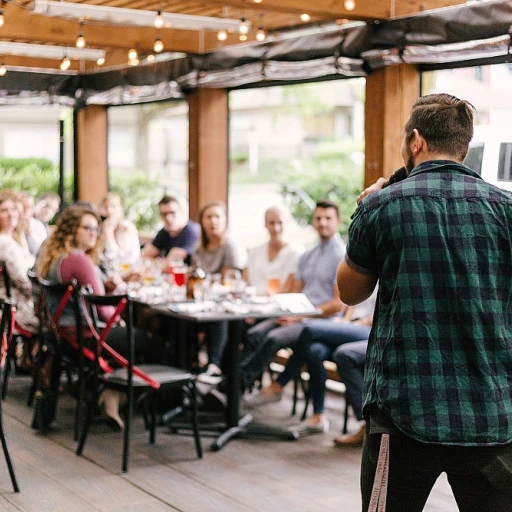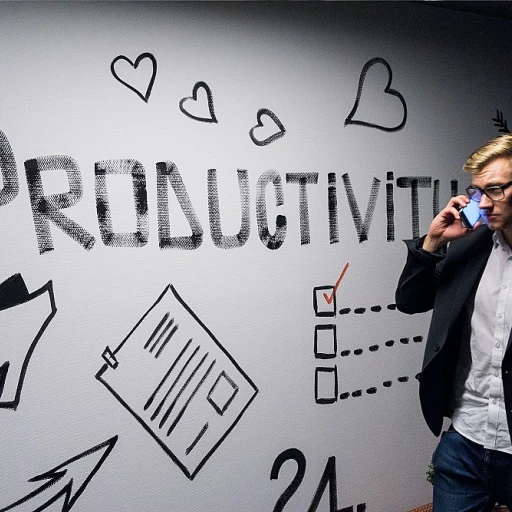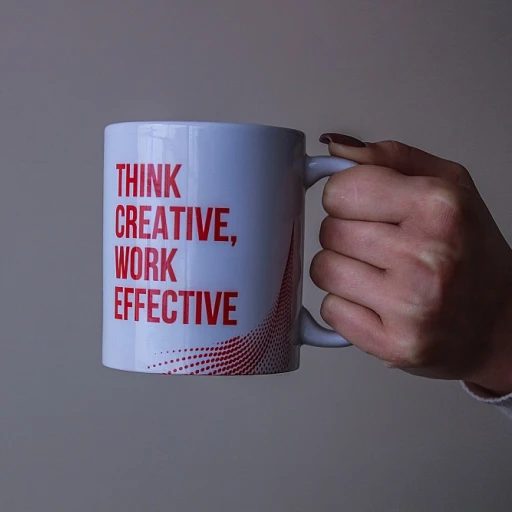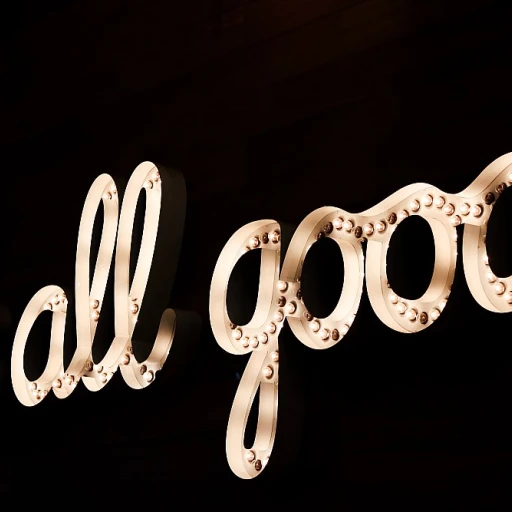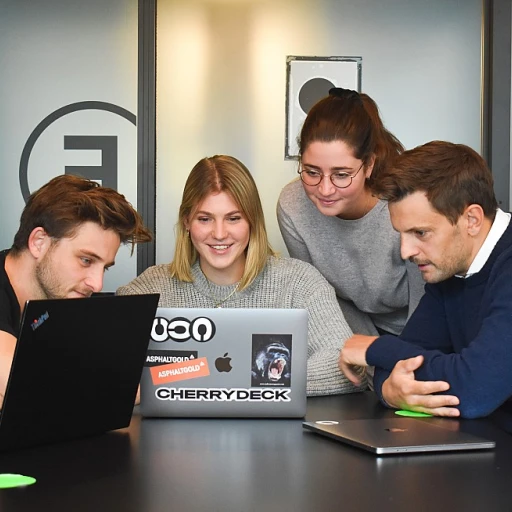Understanding the Importance of Teamwork in the Workplace
Recognizing Teamwork as a Workplace Essential
Teamwork stands as a cornerstone in the landscape of modern work environments. It is the collective effort of diverse team members that often dictates the success of a project. In any functional team environment, different roles blend together, ensuring collaboration towards common goals. By fostering a culture of open communication and effective problem solving, teams can achieve remarkable success.
In interviews, it is crucial to assess a candidate's ability to function as a team player. Hiring managers craft questions to understand how potential hires perceive their roles within a team. For example, questions that ask candidates to describe a time they contributed to a team project can provide deep insights into their teamwork skills. Such interview questions challenge candidates to offer real-world examples where their ability to collaborate and communicate contributed to team success.
The ability to offer candid feedback and adapt to varying team dynamics is also key. This involves listening skills and the capacity to both give and receive constructive criticism. When candidates illustrate their experiences working within collaborative settings, they provide a window into their approach to teamwork.
Ultimately, evaluating teamwork in interviews assesses more than just technical skills. It’s about understanding how candidates harmonize with team dynamics and how they can effectively contribute to a collective goal. Incorporating thoughtful interview questions about teamwork sheds light not only on their past experiences but also on their potential to thrive within your organization. For those interested in learning more about crafting effective questions, consider exploring
Mastering the Art of Coaching Interview Questions for added insights.
Key Elements to Evaluate in Teamwork Skills
Crucial Aspects to Examine in Teamwork Skills
In the workplace, assessing a candidate's ability to work well within a team is vital. Teamwork skills encompass various components that contribute to effective collaboration and team success. Here's a breakdown of key elements to focus on when evaluating these skills during an interview:
- Communication: Open communication is the backbone of successful teams. Examine a candidate's ability to articulate thoughts clearly and listen actively to other team members.
- Collaboration: Investigate how the candidate approaches working with others. Good team players often adjust their work styles to accommodate team dynamics and actively contribute to team projects.
- Role Recognition: Understanding one's role and the roles of other team members is essential. Evaluate how the candidate integrates their role with the broader team functions effectively.
- Problem Solving: Teamwork often involves overcoming obstacles. Consider a candidate's ability to brainstorm solutions, negotiate differences, and contribute to positive outcomes.
- Flexibility: The ability to adapt to changes in team environment or project goals demonstrates resilience and can be indicative of a candidate's long-term success.
A candidate's responses might give insights into their experience working in varied team settings, but remember to probe further with follow-up questions about time they succeeded or faced challenges in a team project. It's also important to assess their ability to provide constructive feedback and how they receive feedback from other team members.
For more detailed guidance on specific questions to ask when evaluating teamwork skills, check out our
essential questions for dental assistant interviews.
Crafting Questions that Uncover Teamwork Abilities
Understanding the significance of teamwork abilities can set the foundation for developing effective interview questions that reveal valuable insights into a candidate's potential as a team member. Here are some strategies for formulating questions tailored to assess teamwork skills:
- Ask Behavioral Questions: Leveraging behavioral interview questions about teamwork allows interviewers to explore how candidates have navigated team situations in the past. A useful example question could be, "Can you describe a time when you had to manage a disagreement with a team member?" This question encourages candidates to reflect on their problem solving abilities and effective communication skills.
- Focus on Role and Contribution: Asking questions that delve into a candidate's role in a specific team project helps identify their individual contribution and initiative. For instance, "What was your role in the last team project you worked on and how did your actions lead to team success?" This allows candidates to showcase their specific abilities and highlight their significance as a team player.
- Evaluate Open Communication: Team environments thrive on communication, making it essential to assess how candidates foster open communication among team members. An insightful question might be, "How do you ensure that all team members are heard and involved?" Responses can indicate the candidate's collaboration skills and their propensity for maintaining inclusive dialogue.
- Explore Ability to Provide and Receive Feedback: Construct questions that examine a candidate's experience with giving and receiving feedback within a team. A question like, "Describe a time when you received feedback from team members and how you implemented it," can reveal a candidate's level of receptiveness and adaptability.
- Assess Adaptability in Diverse Teams: Teams often consist of diverse individuals with varying perspectives. Questions such as "How do you adjust your approach when working with teams from different cultural or professional backgrounds?" can help determine a candidate’s flexibility and ability to thrive in diverse settings.
By employing these interview questions, hiring managers can gain a comprehensive understanding of a candidate's team dynamics and teamwork abilities, ultimately enhancing the overall interview process. For further insights into refining your interview strategies, explore our blog on
navigating the interview process.
Analyzing Candidate Responses
Interpreting Reactions to Teamwork Scenarios
Evaluating a candidate's ability to function within a team involves paying close attention to how they explain their experiences and approach teamwork challenges. The focus is on interpreting their responses to teamwork interview questions, observing how they embrace their role as a team player, and contribute to a team environment.
- Describing Past Experiences: When candidates describe a time they worked in a team, their example should reflect not only the team dynamics but also their ability to communicate effectively and collaborate with team members. Pay attention to how they articulate their role and the project outcome.
- Demonstrating Problem Solving and Collaboration: Insight into a candidate's problem solving skills can be found in their description of overcoming team challenges. Look for examples where they managed to drive open communication or mediate between team members to achieve project success.
- Discussing Feedback and Communication: A valuable team member understands the importance of feedback and effective communication. When analyzing responses, consider whether the candidate is open to giving and receiving feedback, and how they adapt their communication style to fit various team dynamics.
- Identifying Leadership and Adaptability: While some interview questions may uncover a candidate's natural ability to lead, see how they handle taking a less prominent role. Are they receptive to the needs of the team and flexible in their approach to ensure collective success?
An in-depth analysis of a candidate's answers provides clues about their potential fit within your team structure. Their ability to describe working with others, their commitment to team success, and their personal growth experiences offer insights into future contributions they might make.
Common Pitfalls to Avoid When Evaluating Teamwork
Common Mistakes in Evaluating Teamwork Skills
Evaluating teamwork skills during an interview can be challenging. Sometimes, interviewers focus too much on individual achievements rather than how a candidate contributed as a team member. Here are some common pitfalls to watch out for:
- Overlooking Communication: Effective communication is crucial in any team environment. Avoid ignoring crucial questions about teamwork that assess a candidate’s ability to engage in open communication and provide feedback to other team members. Without this, you might miss out on understanding how well they collaborate with others.
- Lack of Focus on Specific Examples: When asking teamwork interview questions, it's essential that candidates describe time or situations where their contribution to a team project was significant. Avoid generalities and push for specific examples that show their role and problem-solving abilities in a team dynamic.
- Ignoring Team Dynamics: Not paying attention to a candidate's ability to adapt to changing team dynamics can be a mistake. Understanding how they function in different group settings is crucial for predicting their success in future projects.
- Neglecting to Assess Collaboration: Collaboration isn't just about working together but how effectively team members can reach a common goal. Ask questions that require candidates to describe their part in successful team projects, highlighting their collaborative initiatives.
- Underestimating the Value of Feedback: Feedback is instrumental in effective teamwork. Don't forget to inquire about time when candidates gave or received feedback and how it was handled, reinforcing or improving team success.
To ensure you're accurately evaluating a candidate's potential as a team player, consider a holistic view of their past teamwork experiences and the skills they highlight through their answers. Structured interview questions can greatly aid in this process, which aligns closely with the key elements to evaluate teamwork skills mentioned previously. Remember, a misjudgment here can affect broader work dynamics and project outcomes.
Enhancing the Interview Process for Better Team Dynamics
Improving Interaction and Inclusive Practices
Enhancing the interview process for better team dynamics is vital for fostering an environment where all team members thrive. To achieve this, consider refining how you conduct interviews and select candidates.
- Ensure Open Communication: Facilitate open dialogue during interviews, where candidates feel comfortable expressing experiences and discussing their teamwork skills. This encourages transparency and better comprehension of their professional journey.
- Use Realistic Scenarios: Structure your questions to simulate real teamwork situations. Present examples where the candidate needs to describe time working within a collaborative environment. Discuss a time when they successfully led a team project or solved a problem within their team. This not only gauges their practical application of teamwork skills but also challenges their problem-solving abilities.
- Assess Role Versatility: Understand the candidate's ability to adapt to different roles. Inquire about scenarios where they've been a team member and a leader on separate projects, examining how they navigated these roles.
- Promote Effective Communication: Highlight the importance of open and effective communication when querying examples of past teamwork experiences. This can involve asking about how they provided or received feedback within a team or how they mediated conflicts among team members.
- Explore Collaboration Techniques: Examine how candidates contribute to and encourage collaboration. Ask questions about their approach to collaborative opportunities and challenges to identify those who promote team success and harmony.
- Identify Potential Pitfalls: Be vigilant about common pitfalls which can disrupt team dynamics. Scrutinize responses carefully for signs of inflexibility, lack of empathy, or excessive dominance, which can impede teamwork.
By implementing these strategies, the interview process will not only assess the candidates' teamwork abilities effectively but will also cultivate a supportive, communicative, and collaborative team environment that drives success.
